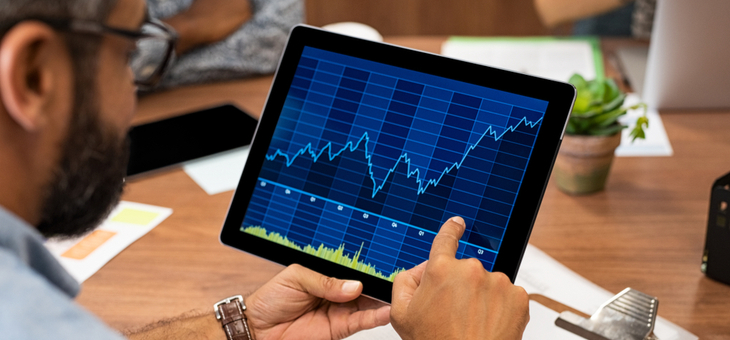In March 2020 as COVID-19 swept the world, international stock markets nosedived and billions were wiped from superannuation accounts across Australia.
It might have seemed prudent at the time to move your super into a lower risk option such as cash, but that could have been the biggest mistake you could make in planning for your retirement.
Research from Aware Super has shown that Australians who switched to cash and then didn’t switch back were 33 per cent worse off than those who did nothing at all.
The recovery of super funds after the lows of 2020 has been nothing short of amazing. According to the Association of Superannuation Funds of Australia (ASFA), funds delivered average annual returns of nearly 20 per cent for the 2020-21 financial year, with many breaking records.
Read: Is your retirement nest egg at risk from climate change
“We would normally expect super funds to report annual returns in the order of 6, 7 or 8 per cent,” AFSA chief executive Martin Fahy said in July.
“Clearly this is a remarkable result – the system’s strongest performance in the nearly 30 years since compulsory superannuation began.”
If you were one of the unfortunate ones who switched, you’re not alone. More than 20,000 Aware Super members also reduced the risk in their investment approach during the stock market shock, but then missed out on the stock market’s roaring recovery later in the year.
One member with a $100,000 balance at the start of 2020 who switched from the growth option to the cash option lost around $30,000.
Aware Super executive Sarah Forman says the research highlights the price of panicking and that superannuation is a long-term investment.
Read: Survey shows retirement confidence may be misplaced
“Go easy on yourself … your experience is very common,” Ms Forman told YahooFinance.
“Hundreds of thousands of Australians switched their super to more defensive investment options early in the pandemic and missed the market rebound.
“The sad reality, though, is that in times of market upheaval, many people panic and make defensive switches in their investment options, but as markets recover – and the sense of urgency has subsided – they can be slow to switch back,” Ms Forman says.
So what can you do if you were one of the unlucky ones? If you reduced your investment option risk after the crash and haven’t changed it back, there are still steps you can take. While it may not entirely reverse all the financial losses, it’s better to act today than not at all.
Kirby Rappell, executive director at SuperRatings, says most people who moved their money into a lower-cost option did so without seeking financial advice first, which highlights the importance of professional advice.
Read: How much money do you need for retirement? The answer depends on one thing
He says before making that switch, it would have paid to at least contact your fund about your options.
“Most funds will offer scaled advice for free or at a low cost, with members able to get advice on topics such as contributions, investment options, insurance in the fund and the transition to retirement,” Mr Rappell says.
“For members who want more tailored advice, some funds will offer comprehensive advice that will also take into account your financial assets outside of superannuation.”
There is usually a cost for this kind of tailored advice, but most funds allowed for it to be deducted from the relevant member’s superannuation account.
Did you move your superannuation into a low-risk option during the pandemic? Did you seek professional financial advice first? Let us know in the comments section below.
If you enjoy our content, don’t keep it to yourself. Share our free eNews with your friends and encourage them to sign up.

